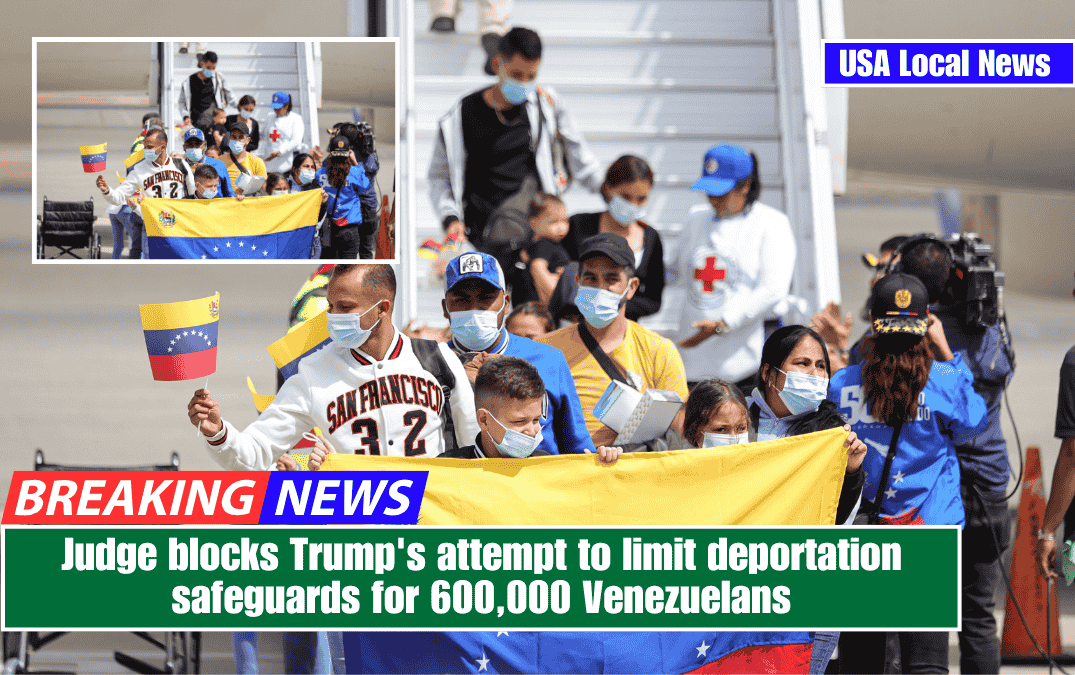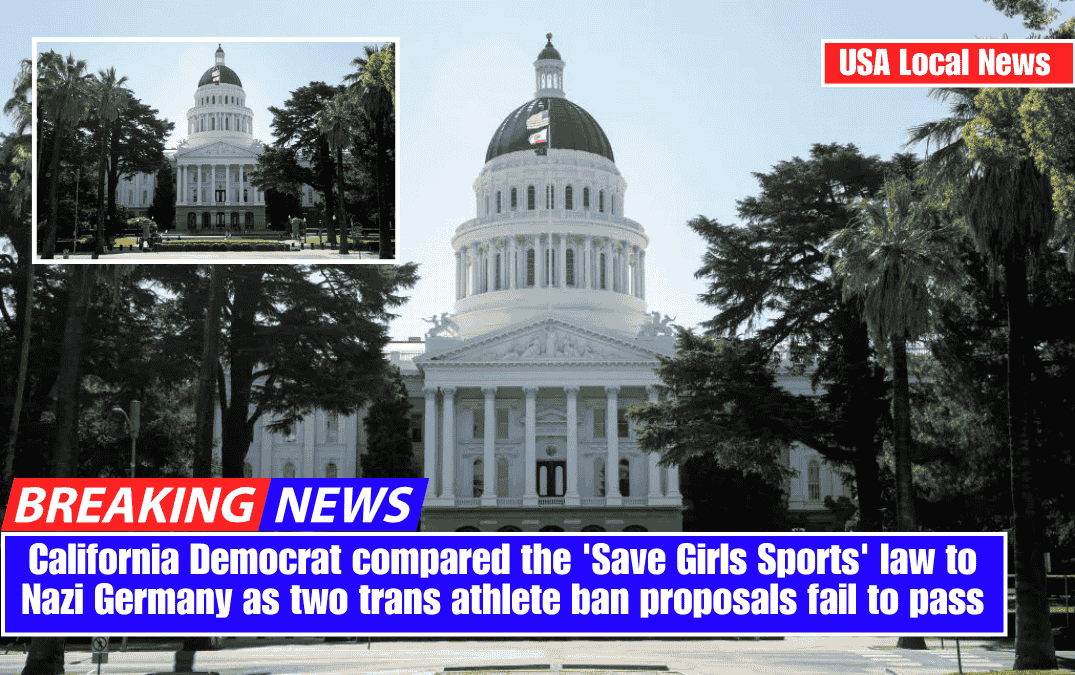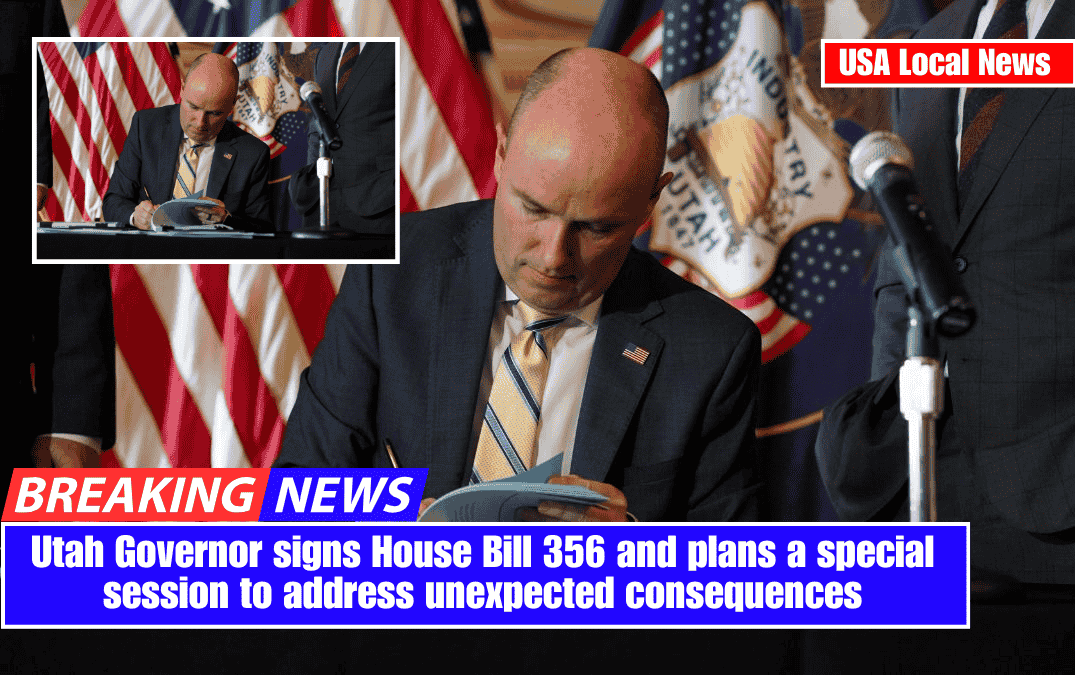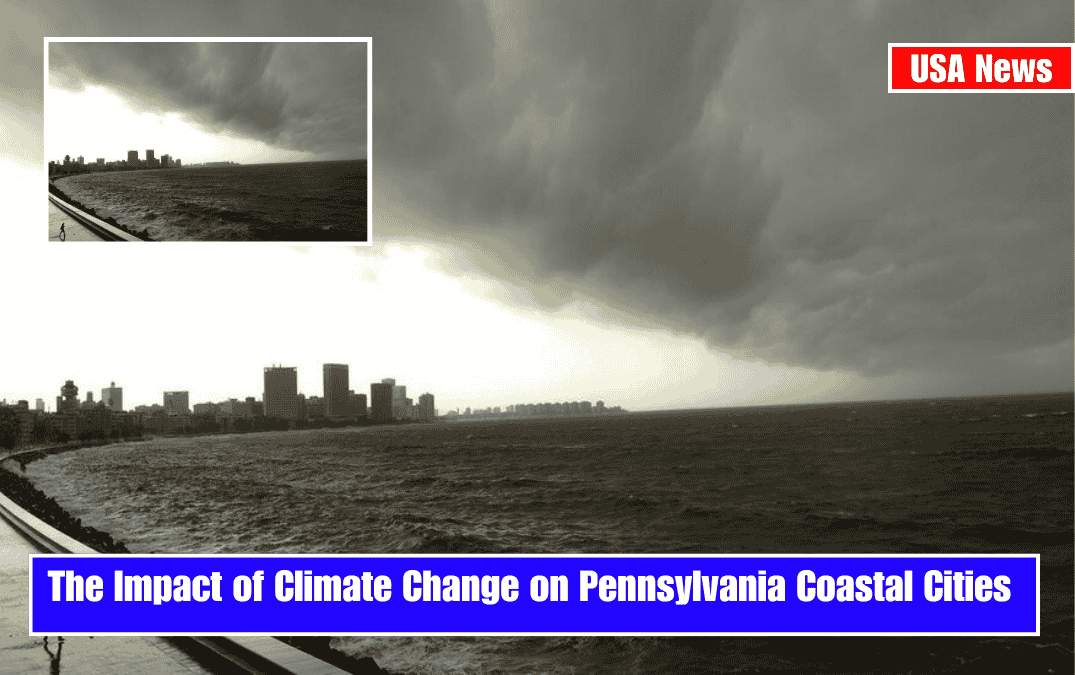A federal judge has blocked the Trump administration from significantly reducing a special immigration status that protects 600,000 Venezuelans living in the United States from deportation and allows them to work legally in the country.
On April 7, the administration is attempting to strip 350,000 Venezuelan nationals of their legal protections, known as “temporary protected status,” a move that could allow the government to deport many of them to a country in the midst of a humanitarian crisis.
The administration also wants to speed up the expiration of the so-called TPS protections for an additional 250,000 Venezuelans.
However, U.S. District Judge Edward Chen ruled on Monday that Biden-era extensions of those protections must remain in effect for the time being.
Chen wrote in a 78-page decision that Homeland Security Secretary Kristi Noem’s decision to reduce the protections was an unprecedented, legally flawed move that appeared to be motivated by racial discrimination on the part of both Noem and President Donald Trump. “The Secretary made sweeping negative generalizations about Venezuelan TPS beneficiaries,” wrote Chen, President Obama’s San Francisco-based appointee.
“Acting on the basis of a negative group stereotype and generalizing such stereotype to the entire group is the classic example of racism,” according to him.
Temporary protected status is a federal immigration law designation that allows a wide range of immigrants to legally remain in the United States while their home country is experiencing a humanitarian crisis, war, or natural disaster.
The designations have sometimes been extended for decades, prompting criticism from immigration opponents that they have gone beyond their intended purpose of providing temporary relief.
TPS can protect both legal and illegal immigrants to the United States.
Both groups of Venezuelan nationals covered by the judge’s order on Monday have TPS protections through October 2026, thanks to extensions ordered by Noem’s predecessor, Alejandro Mayorkas, during the Biden administration.
Mayorkas justified the extensions by citing Venezuela’s “complex, serious, and multidimensional humanitarian crisis” as well as a crackdown on political dissent.
However, less than two weeks after Trump took office, Noem sought to overturn Mayorkas’ decision, instead initiating a much more expedited process to remove Venezuelans on TPS from the country.
For one group of Venezuelan TPS beneficiaries, Noem’s nullification meant they would lose their protections next week. The nullification meant that the other group’s protections would expire in September, though Noem had stated that she would consider additional extensions for that group later.
Chen argued that data show that Venezuelans on temporary protected status are mostly law-abiding, taxpaying, educated, and employed, undermining the Trump administration’s justification for ending the protections.
The judge specifically objected to the administration’s claim that threats from the Venezuelan gang Tren de Aragua justified the termination of TPS protections for hundreds of thousands of Venezuelan nationals.
“The Secretary’s rationale is entirely lacking in evidentiary support,” Chen wrote in an email. “There is no evidence that Venezuelan TPS holders are members of the TdA gang, have gang connections, or engage in criminal activity. Venezuelan TPS holders have lower rates of criminal activity than the general population. Generalizing criminality to the Venezuelan TPS population as a whole is illogical and reeks of racism based on false stereotypes.”
Chen also questioned the administration’s claim that the decision was motivated by national security, pointing out that the arrangement required the Trump administration to negotiate directly with Venezuela’s dictator, Nicolas Maduro, potentially normalizing his regime.
“It is hard to discern precisely what the U.S. interest is in this instance,” Chen wrote in her letter.















